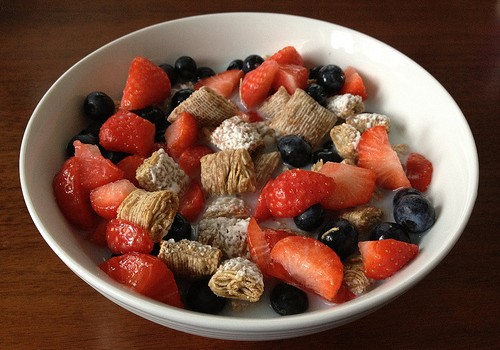
Increase Your Fibers Intake
It is commonly known that dietary fibers are great for digestion. As bulky proteins, they facilitate intestinal transit and flow of nutrients through the gastrointestinal tract. This allows you to absorb your nutrients faster and more efficiently. Moreover, the transit time of your nutrients in the intestines is decreased, as bowel movements are increased. Foods rich in fibers are varied, and ranger from common fruits (mangoes, bananas) to vegetables, beans, peas, nuts and seeds. Oatmeal and wheat products are also excellent sources of fibers. But be mindful about your intake of dietary fibers: over-consumption might cause you to develop a diarrhea!

Chewing Gum Helps With Heartburn
If you are experiencing acid reflux, here is a simple tip to relieve your pain: chew gums. Yes, it's that simple! In fact, when you chew gum you release considerable amounts of salivary amylase and produce a lot of saliva. Saliva normally has a basic pH (because of its high content in sodium, potassium and bicarbonate ions). Therefore, when saliva gently slides down the esophagus, it can help neutralize the acidic pH at the gastroesophageal sphincter (elastic structure that marks the transition from the the esophagus to the stomach); which is the most common site of acid reflux.
- Important notification about information and brand names used in this slideshow!
- Photo courtesy of The Greatist by Flickr : www.flickr.com/photos/greatist/6002002397/

Consider Smaller Meals
Alongside with the quality of what you are eating, the "quantity" of your meals also play a big role in digestion. Bigger and bulkier meals are much more difficult to digest than smaller food portions. Just like in the case of fatty meals, the digestion of larger meals require more time and energy from the body, causing your gastrointestinal tract to overwork. With that said, you should probably consider eating smaller amounts of food at more regular intervals compared to larger meals at once. In addition, one is more likely to experience weight gain with the consumption of larger meals compared to small regular meals.
- Important notification about information and brand names used in this slideshow!
- Photo courtesy of Steven Depolo by Flickr : www.flickr.com/photos/stevendepolo/3790018011/

Drink Plenty Of Fluids
The rationale behind drinking a lot of fluids to ease up digestive problems is simple: water facilitates the passage of food products throughout the entire digestive tract, from the oral cavity to the intestines. With water, nutrients are better mixed together, and thus better prepared for the action of digestive enzymes. In addition, it facilitates nutrients's absorption in the intestinal villi. Another important function of water is that it works as a flushing system: drinking large amounts of fluids, especially in the morning helps you to cleanse your entire organism, thus eliminating the toxins accumulated overnight and which could have had a negative impact on your digestion.
- Important notification about information and brand names used in this slideshow!
- Photo courtesy of BMiz by Flickr : www.flickr.com/photos/benmizen/8911280769/

Get Moving: Exercise!
And finally, there is nothing better than exercise! Physical exertion really does to us a lot more good than we are aware of. Of course, there is the obvious association between physical exercise and increase in fat burning. But just as much exercising helps us in losing weight, it has an extensive list of internal benefits for the human body functioning. For instance, physical exercise stimulates the internal release of anti-stress hormones, endorphins. It also helps in detoxifying the body and cleansing the internal organs, including those of the gastrointestinal tract. Exercise also increases blood flow to internal organs, and in the case of the small intestine this increases the capacity of absorption of its epithelial villi.
- Important notification about information and brand names used in this slideshow!
- Photo courtesy of Idalí Beltré Acevedo by Flickr : www.flickr.com/photos/idalibeltre/472102744/

Probiotics
Probiotics are made of small bacteria that help in maintaining the balance of the intestinal flora. Probiotics are usually sold as nutritional supplements that need to be added to the diet. Why would we need n external source of bacteria to maintain gastrointestinal balance? You might be wondering. The answer is, the normal flora of the intestinal tract carries out a protective function against colonization and invasion by external pathogenic bacteria. In some individuals however, the normal intestinal flora is depressed and this facilitates the outgrowth of pathogenic bacteria that can affect both the digestion and absorption of nutrients. That is the reason why probiotics are given orally, to restore the normal flora of the intestinal tract.
- Important notification about information and brand names used in this slideshow!
- Photo courtesy of Health Gauge by Flickr : www.flickr.com/photos/healthgauge/8363381335/

Avoid Alcohol
Alcohol might be great for night outs, cocktails and other social events, but does not always have a positive effect on digestion. When you drink alcohol, it needs to be extensively metabolized by the liver. However, the cofactors needed for the functioning of alcohol metabolizing enzymes (like alcohol dehydrogenase, aldehyde dehydrogenase) are also needed for digestion. Henceforth, alcohol delays and possibly prevents digestion. Secondly, chronic consumption of alcohol can cause liver cirrhosis(fibrosis and loss of function) as well as acute and chronic pancreatitis. With the first condition, there is a decrease in the secretion of bile, therefore the digestion of fats is affected. In the second condition, protein digestion is affected; and consequently you could experience several episodes of diarrhea followed by dehydration.
- Important notification about information and brand names used in this slideshow!
- Photo courtesy of NYCandre by Flickr : www.flickr.com/photos/nycandre/3515378674/

Stop Smoking
Nicotine is a central nervous system stimulant that produces subjective feelings of satisfaction and relaxation. However, despite these seemingly positive effects nicotine is no good for the digestive system. In fact, it has been demonstrated that cigarette smoking is one of the most important triggers for flares of Inflammatory Bowel Diseases (IBDs) symptoms. Furthermore, nicotine relaxes the tone of the lower esophageal sphincter, thus increasing the risk of heartburn. Cigarette smoking also destroy the gastric mucosa, leading to an increased risk of peptic ulcer diseases. Lastly, chronic cigarette smokers are at a greater risk of developing liver cirrhosis and pancreatic cancer.
- Important notification about information and brand names used in this slideshow!
- Photo courtesy of Sibel by Flickr : www.flickr.com/photos/polanaked/3097640389/
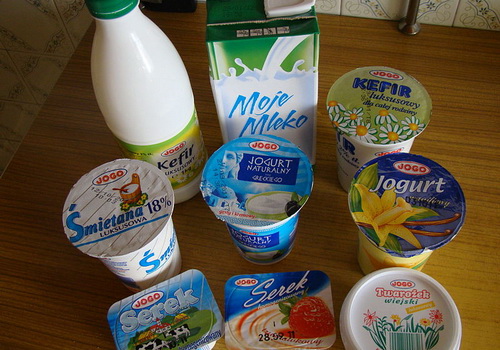
Maybe Dairy Products Are A Problem?
Consumption of dairy products (milk, cheese, yogurts, etc.) also has an impact on the digestive system. Dairy products are rich in lactose, a disaccharide sugar derived from galactose and glucose. Lactose however is needed by intestinal bacteria (especially Escherichia Coli) for development and survival. With that said, although E. Coli is part of the normal flora or the gut, overgrowth of E.Coli instantly becomes pathogenic; and this can be accelerated by excessive consumption of lactose containing products. Additionally, some people are "lactose intolerant", meaning that they are unable to break down lactose into glucose and galactose. And because of that the ingested lactose can neither be broken down, nor absorbed. Henceforth, it remains in the intestinal lumen, is fermented by intestinal bacteria and results in an explosive diarrhea.
- Important notification about information and brand names used in this slideshow!
- Photo courtesy of Darekm13 by Wikimedia Commons : commons.wikimedia.org/wiki/File:Produkty_mleczne_firmy_%C5%81SM_%C5%81%C3%B3d%C5%BA.jpg

Watch Your Diet
Digestion is strongly dependent on what you eat. For instance, fatty meals are bulkier than protein-rich and carbohydrate-rich meals; henceforth digestion of fatty meals is going to be more fastidious and more demanding (in terms of time and energy) compared to the digestion of carbohydrates and proteins. Additionally, with fatty meals there is an increase in intestinal transit time, which corroborates with increased risk for constipation, multiplication of enteric flora and diarrheal episodes. Now, this doesn't mean that one should completely abstain from eating fatty meals, very far from that. The point is, it is important to know how to balance and adjust your meals, in order to get the best out of each one of them.
- Important notification about information and brand names used in this slideshow!
- Photo courtesy of wecometolearn by Flickr : www.flickr.com/photos/wecometolearn/7094038029/






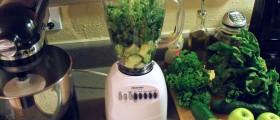
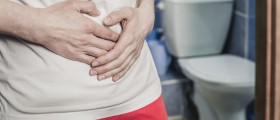
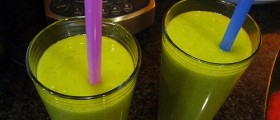


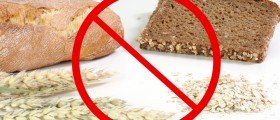
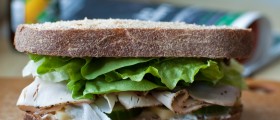



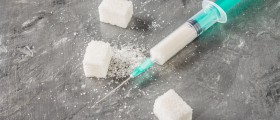
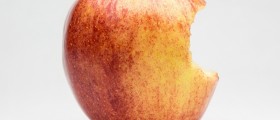
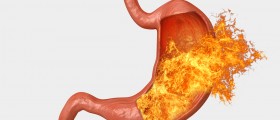
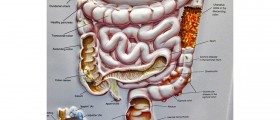
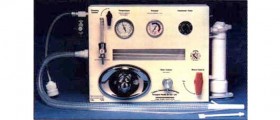
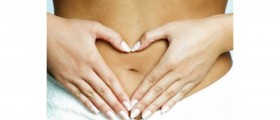


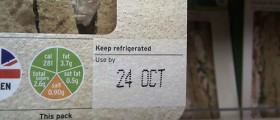


Your thoughts on this
Loading...